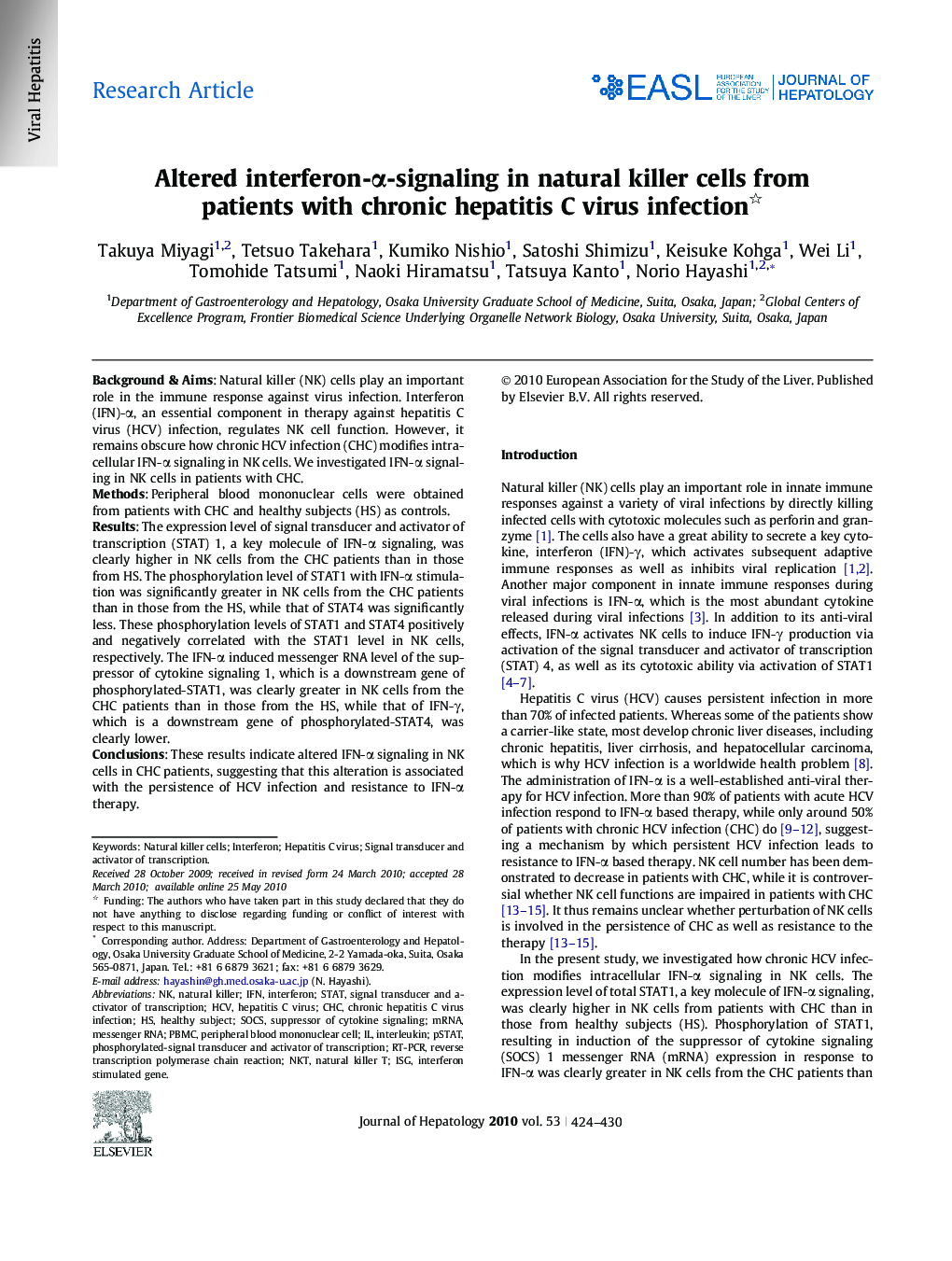| Article ID | Journal | Published Year | Pages | File Type |
|---|---|---|---|---|
| 6107020 | Journal of Hepatology | 2010 | 7 Pages |
Background & AimsNatural killer (NK) cells play an important role in the immune response against virus infection. Interferon (IFN)-α, an essential component in therapy against hepatitis C virus (HCV) infection, regulates NK cell function. However, it remains obscure how chronic HCV infection (CHC) modifies intracellular IFN-α signaling in NK cells. We investigated IFN-α signaling in NK cells in patients with CHC.MethodsPeripheral blood mononuclear cells were obtained from patients with CHC and healthy subjects (HS) as controls.ResultsThe expression level of signal transducer and activator of transcription (STAT) 1, a key molecule of IFN-α signaling, was clearly higher in NK cells from the CHC patients than in those from HS. The phosphorylation level of STAT1 with IFN-α stimulation was significantly greater in NK cells from the CHC patients than in those from the HS, while that of STAT4 was significantly less. These phosphorylation levels of STAT1 and STAT4 positively and negatively correlated with the STAT1 level in NK cells, respectively. The IFN-α induced messenger RNA level of the suppressor of cytokine signaling 1, which is a downstream gene of phosphorylated-STAT1, was clearly greater in NK cells from the CHC patients than in those from the HS, while that of IFN-γ, which is a downstream gene of phosphorylated-STAT4, was clearly lower.ConclusionsThese results indicate altered IFN-α signaling in NK cells in CHC patients, suggesting that this alteration is associated with the persistence of HCV infection and resistance to IFN-α therapy.
